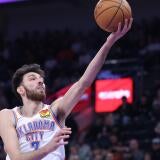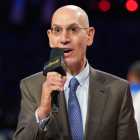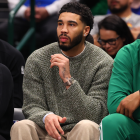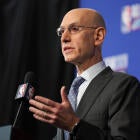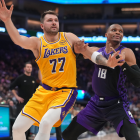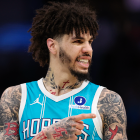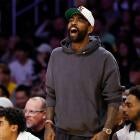FIBA World Cup: Canada has finally delivered on the international stage, and now it's time to get greedy
Led by Shai Gilgeous-Alexander, Canada's national team is aiming for more than an Olympic berth
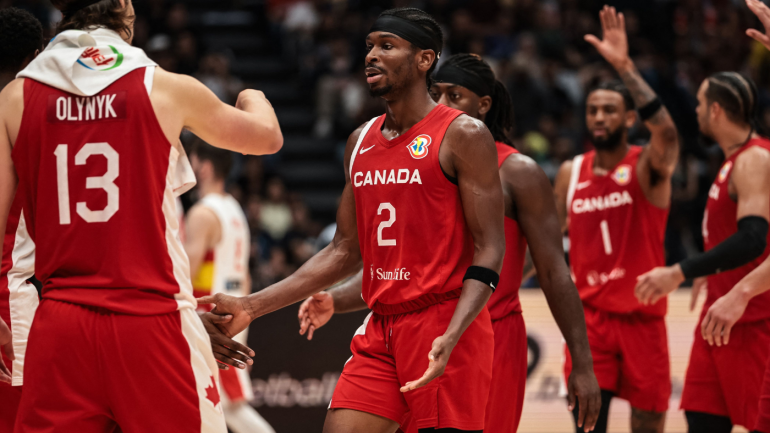
At a university gym in Toronto in August 2011, during the Canadian senior men's national team's training camp, Cory Joseph told me about studying Steve Nash and cheering for his favorite Raptors: Vince Carter, Tracy McGrady, Damon Stoudamire, Muggsy Bogues. Joseph said that, when his brother-in-hoop Tristan Thompson was drafted No. 4 overall, it felt like he'd been drafted fourth, too.
Joseph had actually been drafted 29th by the San Antonio Spurs that summer, and he was one of only three NBA players (Joel Anthony, Andy Rautins) on Canada's roster for the FIBA Americas. They finished sixth in the tournament after a devastating loss to Panama, dashing their dreams of qualifying for the 2012 Olympics in London, which would have been their first appearance since Nash led them to Sydney in 2000.
As brutal as that loss was -- coach Leo Rautins announced his resignation hours later -- there was a sense that Canada was on the cusp of something special. Joseph and Thompson, both 20, were two of the faces of Canada's next generation. Sixteen-year-old Andrew Wiggins had already been compared to McGrady and Kevin Durant. It seemed unfathomable that it would take another dozen years to make the Olympics.
More than a decade ago, at summer league in Las Vegas, an editor sarcastically suggested I write a feature about the rise of Canadian basketball, a subject that had already been done to death. You can read tens of thousands of words about it now, including an ESPN story written by Nash (headline: "Canadian basketball has arrived"), a pair of Sports Illustrated features 15 months apart and two New York Times stories (in 2014 and 2019) highlighting the talent in the Greater Toronto Area. Anthony Bennett and Wiggins were drafted No. 1 overall in consecutive years, and a 17-year-old RJ Barrett led Canada's U19 team to a win over the United States en route to a gold medal at the FIBA Under-19 World Cup.
Despite Canadians being all over the NBA (it has been the most represented country outside of the United States for nine straight seasons; a record 24 Canadians played in an NBA game in 2022-23), the national team has known nothing but heartbreak during what was supposed to be its golden era. Under coach Jay Triano, close losses to Argentina (2013) and Venezuela (2015) cost them berths in the 2014 FIBA World Cup and 2016 Olympics. Under coach Nick Nurse in 2021, the Czech Republic eliminated them from an Olympic qualifying tournament in an overtime game that was decided when Tomas Satoransky banked in a tough 2 over Lu Dort.
Last month at the Raptors' practice facility, when given the chance to hype up the group that had assembled for training camp under new coach Jordi Fernandez, Joseph curbed his enthusiasm. "We're good on paper right now," he said, adding that FIBA is "a different game, and obviously we haven't been that successful" in years past. By the time the team flew to Jakarta for the 2023 FIBA World Cup, it wasn't quite as formidable on paper: Jamal Murray was no longer on the roster, citing the need to recover for the 2023-24 season, and neither was Joseph, whose back had flared up, per Sportsnet.
All of this is to say that, when they were down by seven points with four minutes left of a must-win game against Spain on Sunday -- after a shocking loss against Brazil two days earlier -- Canada felt the weight of recent history. And thanks to clutch 3s from Dillon Brooks and Nickeil Alexander-Walker, superstar stuff from Shai Gilgeous-Alexander and a rimmed-out buzzer-beater from Spain's Alex Abrines, the result was different this time. The win earned Canada a spot in the World Cup quarterfinals and a spot in the 2024 Olympics.
The roster that goes to Paris could be stacked like never before. Murray and Gilgeous-Alexander could share the backcourt, with Andrew Nembhard backing them up. Wiggins could be on the wing, as could Shaedon Sharpe and Bennedict Mathurin. If Brandon Clarke is healthy and the recently drafted Olivier-Maxence Prosper and Leonard Miller are ready, there will be difficult cuts to make. Now that Canada has finally delivered on its potential, though, it's time to get greedy. After clinching the Olympic berth, Gilgeous-Alexander told Sportsnet that "half of our job is done." The other half, he said, is a gold medal in the World Cup. That will require a win against Luka Doncic and Slovenia on Wednesday (update: check), a win against Serbia on Friday and a win in the gold medal game (against the United States, if Team USA gets past the winner of Thursday's game between Germany and Latvia) on Sunday.
Canada's biggest strength is its defense, which Doncic will challenge with matchup-hunting. Doncic and big man Mike Tobey are a tough cover in the pick-and-roll, and teams that have tried to take the ball out of Doncic's hands have found themselves surrendering high-percentage looks to everybody else. (Update: Doncic shot 4 for 14 inside the arc and finished with five assists, his lowest total of the tournament, before being ejected.) Serbia, led by Bogdan Bogdanovic, crushed Lithuania on Tuesday and, with the exception of their lone loss against Italy, have been dominant offensively throughout the tournament. Canada's path to a medal will not be easy, particularly if they go cold from deep and can't find opportunities to run. If opponents weren't already planning to pack the paint, slow the pace and target Canada's bigs, they will after having seen what Brazil and Spain did.
There are reasons, though, to believe that Canada, who ran circles around France and Latvia in the group stage, has a real chance to make history in Manila. They can throw Brooks and Dort at Doncic, and their late-game spurt against Spain was no accident. In numerous third-quarter runs dating back to their exhibition games, Canada's opponents have been discombobulated on offense in the face of their ball pressure, leading to poor decisions, tough shots and easy buckets on the other end. (Update: Canada went on a 17-3 run in the third quarter against Slovenia.) Canada hasn't had a leading man like Gilgeous-Alexander since Nash was uniform, and they now have a host of players -- Brooks, Barrett, Alexander-Walker, Kelly Olynyk -- who can go off.
This was always the promise of Canada's big basketball boom: They have enough talent to beat anybody, provided that the team can coalesce into more than the sum of its parts. When training camp began in Toronto, Fernandez told the team that it needed to get 1% better on each of the 41 days leading up to the championship game. The first five weeks have been the program's most successful stretch in decades. Five days to go. (Update: Four.)


